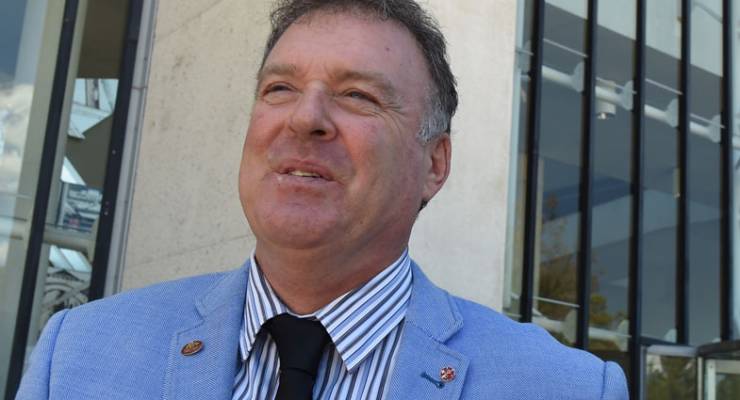
Western Australia has been left short a senator by the latest turn in the Rod Culleton saga, with the President of the Senate advising the Western Australian Governor yesterday that the position was officially vacant.
Following less than a month after he quit One Nation to sit as an independent, Culleton’s eviction and the developing quarrel over who will replace him follows a familiar pattern for the party.
The problem is compounded by the fact that the various interlocking disputes are unfolding in Western Australia, where the party is gearing up for its most significant state election campaign in 16 years.
Most of the prevailing confusion stems from the fact that Culleton is simultaneously falling foul of two separate grounds for disqualification, each with distinct legal implications.
The matter that came to a head yesterday relates to Culleton’s bankruptcy, as determined by a Federal Court ruling on December 23.
Culleton’s insistence that the court got it wrong failed to impress the Senate President, Stephen Parry, who has taken the view that the position became vacant the moment he was formally registered as bankrupt.
[Gin and Jesus: rogue One Nation senator’s day in court]
Parry’s letter to the Governor gives the state government a basis to proceed in filling a casual vacancy in the manner prescribed by section 15 of the constitution, by which the state parliament rubber stamps the nominee of the party for which the outgoing senator was elected.
While Parry was under a constitutionally mandated obligation to act promptly in alerting the Governor to existence of the vacancy, the imperative for the state government to take the next step is based on the purely political consideration that voters would not wish to be deprived of Senate representation for any longer than necessary.
Premier Colin Barnett took this consideration very seriously when former Labor senator Joe Bullock vacated his seat last year, with parliamentarians summoned from the length of the state to attend a two-hour joint sitting confirming Pat Dodson as Bullock’s successor.
Needless to say, the situation this time around is a good deal less straightforward.
The constitution spells out in detailed, Culleton-proof terms that One Nation did not lose its right to anoint his successor just because he has chosen to go his own way.
This has not been lost on Pauline Hanson, who took to Twitter yesterday to announce she had “already chosen a great person to replace him”.
The problem for Hanson, and whoever her proposed successor might prove to be, is the challenge to Culleton’s election that is currently before the High Court.
While the court is currently in recess until the month, it will in all likelihood conclude that there was no vacancy to fill, since Culleton was ineligible to run at the election.
[‘What is good for Rod Culleton is good for Australia’: a brief message from Senator Rod Culleton]
In that case, the tenure of a Hanson-anointed replacement could prove to be very brief, if the Barnett government indeed chooses to act as decisively as it did when filling the Bullock vacancy.
The issue involving the High Court relates to the second of Culleton’s legal difficulties — a seemingly trivial larceny offence that was pursued against him in New South Wales last year, which actually resulted in no conviction being recorded.
The constitution, however, is clear that the disqualification extends to those “subject to be sentenced”, as was his position at the time of the election.
Consequently, Culleton is in the perverse situation that a win in the High Court would actually make a loser of him, since the validation of his election would leave it to Pauline Hanson to decide who replaces him.
In the rather more likely event that the decision goes the other way, the High Court will almost certainly order that the Senate votes be recounted as if Culleton were absent from the ballot paper, in which case the seat would go to the second candidate on the One Nation ticket — Culleton’s brother-in-law, Peter Georgiou.
Meanwhile, a second set of dissidents within One Nation’s Western Australian orbit is attempting to put a spoke in the party’s wheels as it prepares to contest the March 11 state election.
One Nation is currently in the process of seeking formal party registration through the Western Australian Electoral Commission, a three-month process that was begun not a moment too soon.
An objection to the application has been submitted by former activists who kept the party going in the state after Hanson herself lost interest, causing Pauline Hanson’s One Nation to become One Nation WA in 2004.
What remains of this organisation is now trying to persuade the WAEC that it is the rightful keeper of the One Nation flame, after Hanson rebuffed its offer to get the band back together ahead of the federal election last July.
The objection that a newly registered party under the name of Pauline Hanson’s One Nation will cause confusion between the two entities is unlikely to impress the commission, given that One Nation WA’s registration lapsed in 2009.
However, it may be able to make something out of the claim that Hanson’s outfit unlawfully used its membership list as it scrambled to assemble the 500 members it needed to lodge its registration application in good time, with one member specifically asserting that the approach she received had been to join One Nation WA.
Failing that, the proceedings at least offer WA voters a pre-election reminder of the long-established tendency for the party’s electoral successes to be followed by debilitating recriminations, turf wars and legal squabbles.








Surely he is inimitable, as well as irreplaceable, so why not leave the hole in the air, as a memento mori?.